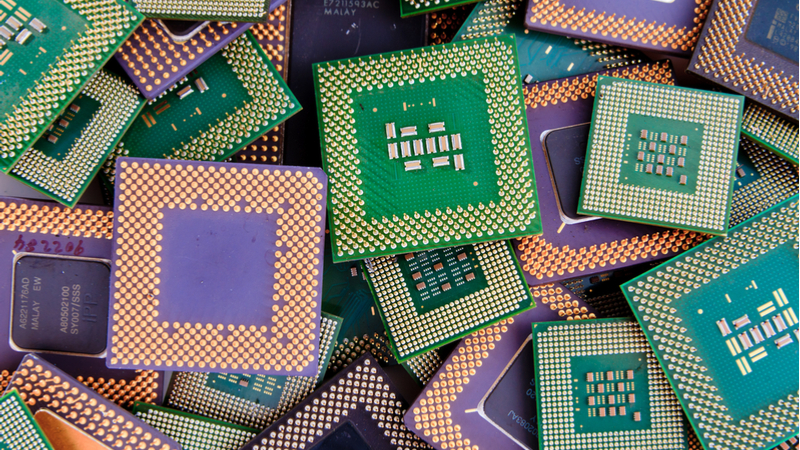
The Department of Commerce today announced a preliminary agreement with TSMC Arizona Corp. for up to $6.6 billion of CHIPS and Science Act funding that the company will use to make advanced semiconductors in its planned third U.S.-based semiconductor making facility by the end of this decade.
TSMC Arizona is a unit of Taiwan Semiconductor Manufacturing Company Limited, which is headquartered in Taiwan and has operations worldwide.
President Biden signed the CHIPS and Science Act into law in August 2022, making up to $52 billion of funding available to incentivize semiconductor makers to establish new manufacturing operations in the United States.
The proposed $6.6 billion award would allow parent company TSMC to expand its presence in Phoenix, Ariz., by building an additional third semiconductor fabrication plant. Through the proposed investment, the Commerce Department said TSMC Arizona would create about 6,000 direct manufacturing jobs, over 20,000 unique construction jobs, and tens of thousands of indirect jobs in this decade.
“Semiconductors – those tiny chips smaller than the tip of your finger – power everything from smartphones to cars to satellites and weapons systems,” President Biden said in an April 8 press release. “TSMC’s renewed commitment to the United States, and its investment in Arizona represent a broader story for semiconductor manufacturing that’s made in America and with the strong support of America’s leading technology firms to build the products we rely on every day.”
TSMC’s three fabs will bring some of the most advanced semiconductor technologies to the United States. The first fab will produce 4nm FinFET process technologies, which is a type of a type of field-effect transistor (FET).
TSMC Arizona announced today that the second fab will produce the world’s most advanced 2nm nanosheet process technology, in addition to its existing plans to produce 3nm process technologies. The company’s third fab will produce 2nm or more advanced process technologies depending on customer demand.
“At full capacity, TSMC Arizona’s three fabs would manufacture tens of millions of leading-edge chips that will power products like 5G/6G smartphones, autonomous vehicles, and AI datacenter servers,” the press release says. “TSMC Arizona expects to begin high-volume production in their first fab in the U.S. by the first half of 2025.”
With the new investments, the Department of Commerce said the United States is on track to produce about 20 percent of the world’s leading-edge chips by 2030. With over $65 billion in investments, TSMC Arizona’s investment is “the largest foreign direct investment in a greenfield project in U.S. history.”
Under the preliminary agreement, the CHIPS Program Office would also make about $5 billion of proposed loans available to TSMC Arizona – in addition to the proposed direct funding of up to $6.6 billion.
“One of the key goals of President Biden’s CHIPS and Science Act was to bring the most advanced chip manufacturing in the world to the U.S., and with this announcement and TSMC’s increased investment in their Arizona campus, we are working to achieve that goal,” said U.S. Secretary of Commerce Gina Raimondo.
“The leading-edge semiconductors that will be made here in Arizona are foundational to the technology that will define global economic and national security in the 21st century, including AI and high-performance computing,” she added. “Thanks to President Biden’s leadership and TSMC’s continued investments in U.S. semiconductor manufacturing, this proposed funding would help make our supply chains more secure and create thousands of good-quality construction and manufacturing jobs for Arizonans.”
“Today’s announcement is another milestone on our road to reassert America’s global innovation leadership,” added Rep. Doris Matsui, D-Calif., who co-authored legislation that led to the CHIPS and Science Act. “These investments will ensure a secure pipeline of some of the most advanced semiconductors in the world – mission critical components our national security apparatus needs to succeed.”
The Commerce Department has announced five CHIPS and Science Act awards so far. To maximize the impact of the awards, Raimondo announced in February that the agency is prioritizing chip projects that will be operational by 2030.
